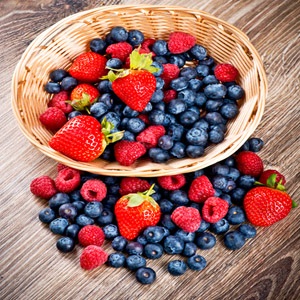
Minced beef is one of the commonest sources of foodborne infections, mainly because many people do not cook the product to high enough temperatures to kill off pathogens such as Salmonella, Listeria and E.Coli. Traditionally, chemical additives have been used to preserve food, but more and more consumers are seeking natural alternatives.
Significant development
The research may be a significant development for the meat industry, which is constantly searching for natural preservatives to replace chemical additives.
Cranberries offer a defence against food poisoning due to the fruit's unique ability to inhibit the growth of harmful bacteria, says University of Maine researcher Vivian Chi Hua Wu, who carried out the study.
"The drive to discover and develop safe, effective and natural antimicrobial agents is ever-increasing," she said in presenting her research in the Journal of Food Protection. "With numerous health benefits, cranberry's antimicrobial effect offers considerable promise as a natural and effective tool to control food-borne pathogens and reduce the incidence of food-borne illness."
She and other researchers added cranberry concentrate to samples of raw ground beef tainted with several types of bacteria that frequently cause food-related illness.
The research study
In the trials, ground beef samples inoculated with four pathogens were treated with cranberry concentrate or sterile water, which acted as the control. The samples were kept at 21 degrees Celsius or 7 degrees Celsius.
The results showed that, compared to the control, cranberry concentrate significantly inhibited food-borne pathogens in ground beef at both 7 degrees Celsius and 21 degrees Celsius.
This latest study supports an earlier review published in the journal Biofactors that reported compounds in cranberries inhibit the growth of bacteria associated with food-borne illnesses.
Cranberries are widely known for their unique "anti-adhesion" activity that protects the body from certain harmful bacteria that cause urinary tract infections, stomach ulcers and gum disease.
The anti-adhesion activity is primarily due to a natural compound in the fruit called proanthocyanidins (PACs). Cranberry's PACs contain a unique A-type structure, while most other foods contain only the more-common B-type PACs. It is cranberry's A-type PACs that are responsible for this anti-adhesion mechanism of action, Chi Hua Wu stated.
Dual action from cranberries
Since cranberry PACs also function as antioxidants, they provide a dual anti-adhesion and antioxidant health benefit. With more PACs and antioxidants per gram than most fruit, cranberries ward off certain bacteria and bolster the body's defenses against free radical damage that can contribute to many chronic diseases including heart disease, the researchers stated.
Research previously published in the Journal of Food Protection found that cranberry juice reduced E. coli, Salmonella and other bacteria in unpasteurised apple cider. Apple cider is particularly susceptible to E. coli and Salmonella contamination and cranberries provide a more natural way to reduce bacteria during the production process, the researchers found.
Source: Decision News Media
Read more
Cranberry cures
Cranberry juice may beat kids' bladder infections




 Publications
Publications
 Partners
Partners














